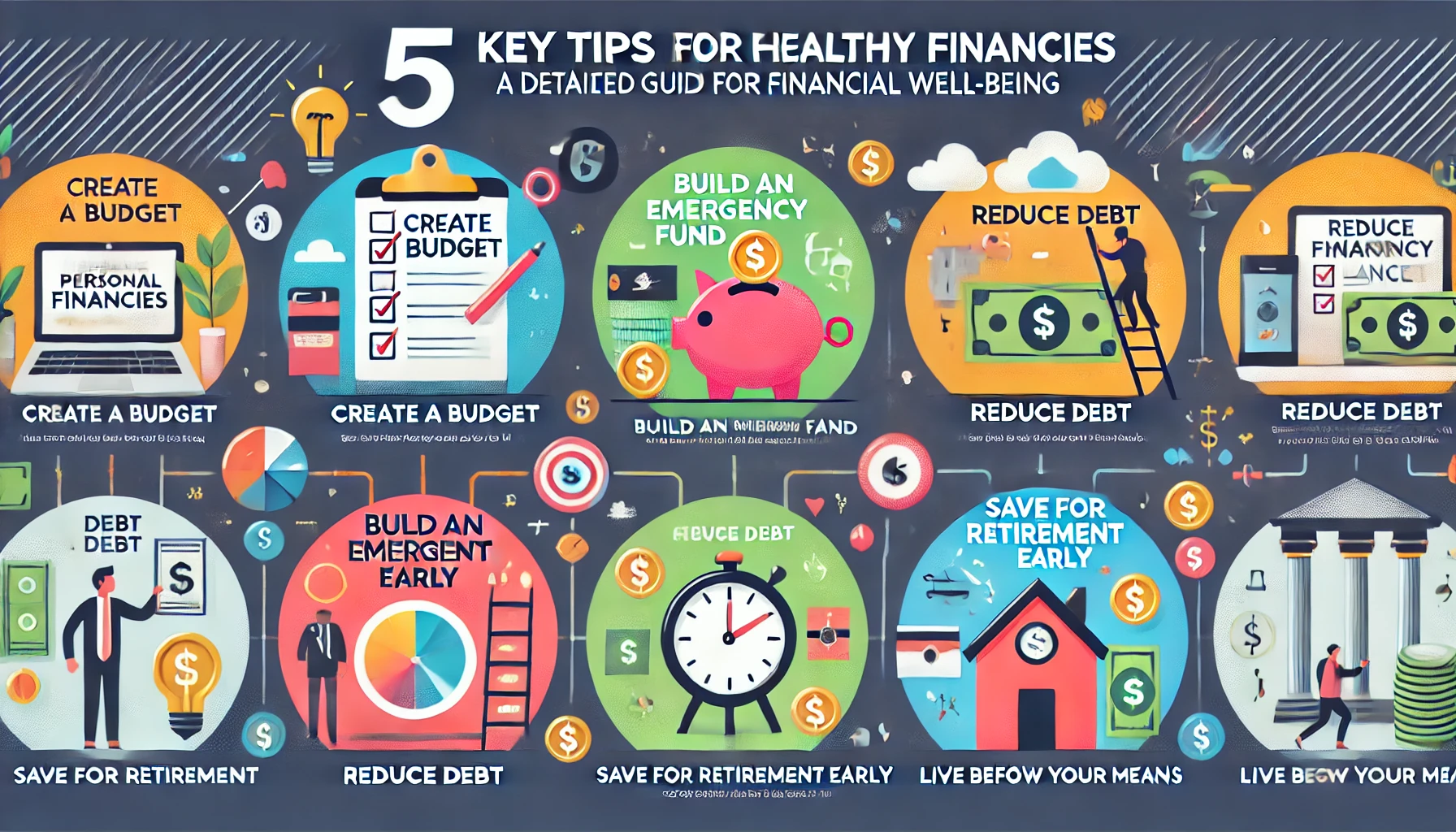1. Create a Budget
- Why it’s important: A budget helps you understand where your money is going, allowing you to prioritize needs over wants and avoid overspending. Without a clear budget, it’s easy to lose track of your finances and accumulate debt.
- How to do it:
- Start by tracking all your sources of income (salary, side jobs, investments).
- List your monthly fixed expenses (rent/mortgage, utilities, insurance) and variable expenses (groceries, entertainment, dining out).
- Use budgeting tools or apps like Mint, YNAB (You Need a Budget), or even a spreadsheet to organize your spending. Make adjustments if you’re overspending in non-essential areas, like cutting back on eating out or subscriptions.
- Allocate part of your income to savings (at least 10-20%) and prioritize debt repayment. Stick to your budget by regularly reviewing and adjusting it as your income or expenses change.
2. Build an Emergency Fund
- Why it’s important: An emergency fund is a financial safety net for unexpected expenses like job loss, medical emergencies, or urgent home repairs. Without one, you might be forced to use credit cards or take on high-interest loans, increasing debt.
- How to do it:
- Set a target: Aim to save 3-6 months of living expenses (rent, food, utilities, insurance). If you have dependents or a single income household, you may want to save more.
- Start small: Automate transfers from your checking account into a dedicated savings account. Start with a small, manageable amount, like $50-$100 per paycheck, and gradually increase it as your income grows.
- Keep it accessible: Place the fund in a high-yield savings account or money market account so it’s easy to access when needed but still earns interest.
3. Reduce Debt
- Why it’s important: High-interest debt (especially from credit cards) can quickly spiral out of control and eat away at your income through interest payments. Reducing debt improves your financial flexibility and allows you to save and invest more.
- How to do it:
- Prioritize high-interest debt: Focus on paying off debt with the highest interest rate first (like credit cards). This method, known as the “avalanche method,” saves you more money in the long run. Alternatively, the “snowball method” involves paying off small debts first to build momentum.
- Consolidate loans: Consider consolidating multiple debts into one with a lower interest rate through a personal loan or balance transfer credit card. This can simplify payments and reduce the overall interest you pay.
- Negotiate: Contact your lenders to negotiate lower interest rates or more favorable repayment terms, especially if you’ve consistently made on-time payments.
4. Save for Retirement Early
- Why it’s important: The earlier you start saving for retirement, the more time your money has to grow through compound interest. Saving early reduces the amount you’ll need to save later and ensures financial security in your retirement years.
- How to do it:
- Employer-sponsored plans: If your employer offers a 401(k) plan, contribute enough to at least get the employer match. This is essentially free money for your retirement.
- IRAs: Open a traditional or Roth IRA if you don’t have access to a 401(k) or want to supplement it. Roth IRAs allow your investments to grow tax-free, making them a great option for younger savers.
- Set automatic contributions: Set up automatic contributions to your retirement accounts from your paycheck or bank account, so saving becomes effortless.
- Increase contributions: As your salary increases, aim to increase your retirement contributions by 1-2% each year. Try to contribute at least 10-15% of your income to retirement savings.
5. Live Below Your Means
- Why it’s important: Spending less than you earn is the foundation of financial health. It allows you to save more, reduce debt, and invest for the future. By living below your means, you avoid the trap of “lifestyle inflation,” where your spending increases as your income rises, leaving you with little room to save.
- How to do it:
- Set financial goals: Set short-term and long-term financial goals (e.g., saving for a house, paying off debt, retirement). Knowing what you’re working towards makes it easier to say no to unnecessary spending.
- Avoid lifestyle inflation: As your income increases, resist the temptation to upgrade your lifestyle immediately. Instead, save or invest the extra income. Continue living on your previous budget and direct any salary raises toward your financial goals.
- Practice mindful spending: Before making a purchase, ask yourself if it’s a need or a want. Delay purchases for a day or week to see if you still want it afterward. This will help curb impulse buying and unnecessary spending.
- Use cash or debit cards: Avoid relying on credit cards unless you can pay off the balance in full each month. Using cash or debit cards can help you stick to your budget.
Bonus Tip: Invest Wisely
- Why it’s important: Saving alone won’t generate enough wealth over time due to inflation. By investing, you allow your money to grow faster through the power of compound returns.
- How to do it:
- Start with low-cost index funds or exchange-traded funds (ETFs) that offer diversification and lower risk.
- Reinvest dividends and contributions regularly to maximize compound growth.
- As your knowledge grows, consider diversifying into other asset classes like real estate or bonds.
By following these tips, you’ll be better equipped to manage your finances, avoid debt traps, and work towards financial freedom over time.


